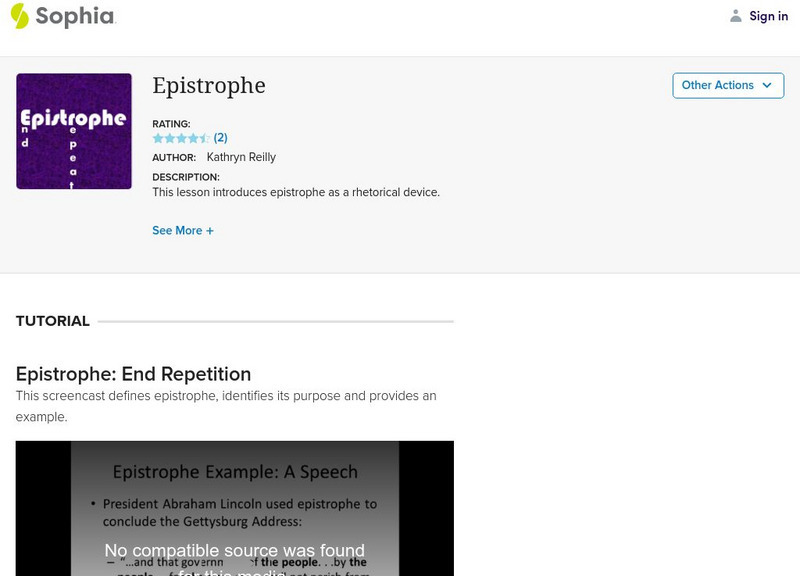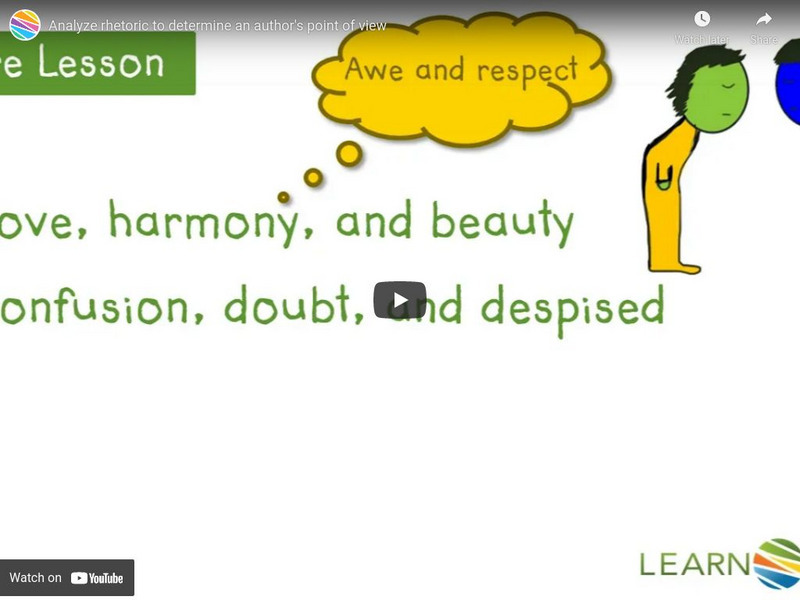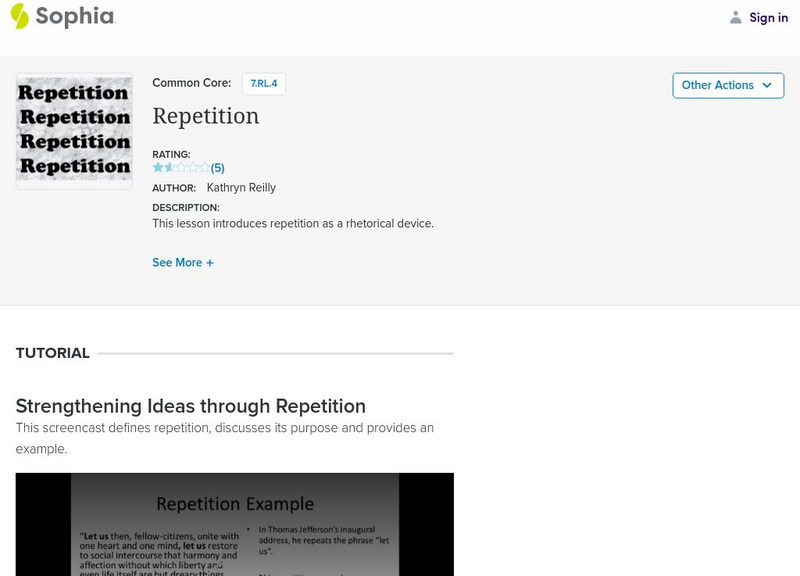Curated Video
Rhetoric: The Golden Key to Verbal Persuasion
People have been persuading one another with their speech for as long as we have records. In many different cultures, aspiring lawyers, administrators, and politicians would have learned the science of rhetoric, of using language...
Curated Video
How to Write a Paragraph: Using Rhetorical Questions in Your Argument
Are you trying to figure out how to write a paragraph? Wondering how to use rhetorical questions in your essay? In this video, I break down how to build your argument in your paragraph using rhetorical questions. Rhetorical questions are...
Curated Video
GCSE Secondary English Age 13-17 - Writing: Writing a Speech Part 2 - Explained
SchoolOnline's Secondary English videos are brilliant, bite-size tutorial videos delivered by examiners. Ideal for ages 13-17, they cover every key skill in English Reading and Writing that students need to master in clear and easy to...
Communication Coach Alex Lyon
Rhetorical Devices For Persuasion
These Top 10 Rhetorical Devices for Persuasion and Public Speaking will enhance the persuasiveness of your speeches. These are also called Rhetorical Techniques or Literary Devices or that writers use in speeches and writing to enhance...
Communication Coach Alex Lyon
What is Pathos?
What is Pathos in public speaking? We'll look at Aristotle's concept and give practical tips on how to use this rhetorical appeal to be more persuasive. Pathos = Appealing to your listeners' or audience's emotion. You can do that through...
GCFGlobal.org
Recognizing Persuasive Language
Lose 10 pounds in one day, guaranteed! With the sixth installment from the digital media literacy series, scholars identify common types of persuasive language. They learn to look beyond techniques such as telling stories, presenting...
TED-Ed
How to Use Rhetoric to Get What You Want
Introduce your orators to the art of persuasion, to ethos, logos, and pathos, with a short video that summarizes the key points in Aristotle's treatise on rhetoric.
Study
Parallelism: How to Write and Identify Parallel Sentences
Parallelism pitfalls are the focus of a short video that models for viewers how to craft parallel constructions using coordinating and correlative conjunctions. The transcript, as well as a short quiz to check for understanding, are...
Sophia Learning
Sophia: Hyperbaton
This lesson focuses on the rhetorical device hyperbaton, changing traditional word order for emphasis. It defines hyperbaton, explains why it is used, provides examples, and practice. Real Player is required.
Sophia Learning
Sophia: Epistrophe
This lesson introduces epistrophe as a rhetorical device. This tutorial lesson shares a short screencast with the lesson's content. [2:20]
Sophia Learning
Sophia: Expletives
Notes introducing expletives and demonstrating how they can be used as a rhetorical device. Notes can be both read and listened to.
Sophia Learning
Sophia: Litotes
This video lesson focuses on the rhetorical device, litotes, or understating for emphasis. It defines the term and offers several examples from life and literature. Real Player is required.
Imagine Learning Classroom
Learn Zillion: Video: Analyze Rhetoric to Determine an Author's Point of View
In this lesson, you will learn to determine an author's point of view by examining the author's use of rhetoric. [5:31]
Sophia Learning
Sophia: Repetition: Lesson 3
This lesson introduces repetition as a rhetorical device using an excerpt from Thomas Jefferson's Inaugural Address, 1881.









